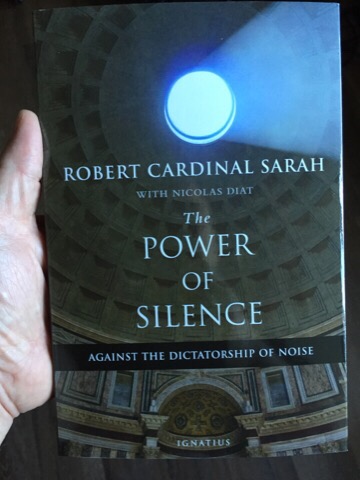At First Things there is a piece by Ramona V. Tausz, who rightly admires the discretion of Queen Elizabeth II regarding the media and too much public exposure. She writes:
[T]here is something refreshing about Elizabeth herself. Nowadays, we expect our politicians, presidents, and even popes to be stars—celebrities who express their individuality in tweet-storms and air their every whim on Facebook. Elizabeth’s remarkable discretion (The Coronation marks the first time she has agreed to an on-camera interview) may strike us as both odd and downright boring. Yet her infamously “stringent control” over media access to the monarchy is integral to her success. For sixty-six years she has faced the challenge of balancing her individuality as Elizabeth Windsor with her public persona as Elizabeth Regina, and in all her time on the throne she has rarely permitted her personality to overshadow her office. It is this regal emphasis on office—on “the monarchy, not the monarch,” as Claire Foy’s Elizabeth puts it in The Crown—that Americans could stand to learn from.
Not only Americans.
I would also hazard to say, many churchmen around the world of every possible level.
Two principles.
1- Less is more. Keep in mind that familiarity breeds contempt.
2 – By and large the media is not to be trusted.
The latter was evident to me and my recent unfortunate experience with a BuzzFeed reporter. He was going to write an article about me anyway – I am convinced at the behest of people who pretty much hate my guts and want me silenced – and it probably would have been worse had I not consented to a meeting and interview before the final product was excreted for public view.
That experience was a good lesson, because it was an example of how reporters lie by understatement. I wrote about understatement – HERE – also in regard to the Jesuit homosexualist activist James Martin, who deceives – like Geryon with the face of an honest man – by leaving out something really important that ought not to be left out. Leaving out something of critical importance is a form of lying. In the case of the BuzzFeed piece, the reporter began his deception from the top, by quoting something controversial that I wrote, but – with ellipsis … left something critical out. He deceived.
There is a great moment in the Old Testament that shows how deceptive “understatement” can be. Take the machinations in the Book of Esther about Haman – loathed by Jews, and rightly so.
 Haman was the adviser of the Persian King Ahasuerus. This is the time of the Babylonian Captivity for the Jews. Haman plots to have all the Jews killed. He needs Ahasuerus to sign on. How to convince him? Haman lies to him by telling him the truth… partly. First, Haman tells the king that that Jews are spread through his whole kingdom, which was true. That makes the Jews seem to be a factor for the whole kingdom, were they to become a problem. Next, Haman tells the king that the Jews obey different laws than the rest of the people, which was true but only partially true. They obeyed the Jewish dietary laws, etc., but Haman left out that they also obeyed the king’s laws. The omission of that last bit, the Jews’ obedience to the king’s laws, made the Jews seem a) widespread and b) disobedient, therefore dangerous. Finally, Haman concludes with an plain lie: Jews must not be tolerated. Ahasuerus issues the edict to kill all the Jews. He deceives by the juxtaposition of truth, half truth and outright falsehood.
Haman was the adviser of the Persian King Ahasuerus. This is the time of the Babylonian Captivity for the Jews. Haman plots to have all the Jews killed. He needs Ahasuerus to sign on. How to convince him? Haman lies to him by telling him the truth… partly. First, Haman tells the king that that Jews are spread through his whole kingdom, which was true. That makes the Jews seem to be a factor for the whole kingdom, were they to become a problem. Next, Haman tells the king that the Jews obey different laws than the rest of the people, which was true but only partially true. They obeyed the Jewish dietary laws, etc., but Haman left out that they also obeyed the king’s laws. The omission of that last bit, the Jews’ obedience to the king’s laws, made the Jews seem a) widespread and b) disobedient, therefore dangerous. Finally, Haman concludes with an plain lie: Jews must not be tolerated. Ahasuerus issues the edict to kill all the Jews. He deceives by the juxtaposition of truth, half truth and outright falsehood.
What Haman did was so appalling that, on the feast of Purim (celebrating the deliverance of the Jews) and their reading of the Book of Esther, when Haman’s name comes up in the text they substitute a noisemaker called a “grogger”, much like the twirly gizmos we use during the Triduum instead of bells.
That’s how most of the media, especially secular media, works. Alas, that’s how some churchmen these days work as well. I recently read something spectacularly wrong about the primacy of conscience that was perfectly deceptive, though it was couched in otherwise true terms. Important – really important stuff was left out.
Haman – Patron of BuzzFeed, etc.
The Book of Esther is a terrific story, btw, and part of our family history. I digress.
When we choose to speak, we should weigh words carefully and think. The Italian proverb I learned in my first week or so of Italian seminary is: Prima pensa, poi parla, perché parole poco pensate portano pena … First, think, then speak, because words which have been weighed little bring penalties. If we speak on something important, we must be careful to include all the bits that really matter to the topic. The “whole” truth, as it were.
The flip side of speaking with precision, is not to speak at all. Not rarely in both the pulpit and the confessional I comment that we could avoid a lot of sins (trouble) if we were just to keep our mouths shut. The more we talk, in general, the greater the chance is that we can get ourselves into trouble. Unintentional trouble is still trouble.
But, “who am I to judge”?
So, churchmen out there… be careful. Learn from the discretion of Queen Elizabeth when it comes to the press. Less can be more.
And when WE are elected to the See of Peter, We shall – firstly, suppress the Jesuits, and then we will disappear into the Apostolic Palace for stretches of time so long that some will wonder if we have died.
At this point I will shut up and direct you all to Card. Sarah’s wonderful book.
Benedict XVI wrote a brief essay as an afterword for a future re-printing of Robert Card. Sarah’s great book The Power of Silence: Against the Dictatorship of Noise.



































Wonderful article. Three thoughts immediately jumped out at me:
1. It’s so remarkable, how this article relates to our desire to “know everything and see everything” in the very way we worship. The idea of “I want to see and hear everything Father is saying at the altar” permeates our liturgy to a very high degree.
2. Pope Benedict XVI, in a similar fashion, demonstrated the concept of regal restraint by taking upon himself the more traditional vestments and accoutrements of his papal office. So often people conflated Benedict’s use of the older traditions and vestments of his papal office with a desire to showboat or amplify his own personality, when the very opposite was true. Illum oportet crescere, me autem minui (John 3:30).
3. Two quotes jumped out at me:
a. “When you appear in public, performing official duties, you are not you. No one wants you to be you, they want you to be it: the crown. The minute you become yourself you shatter the illusion, break the spell.” This quote probably most succinctly sums up the entire article.
b. “I believe that monarchy provides clarity. A symbolic head of state [transcends] the self-serving interests of the egocentric and self-motivated politicians who go in and out of office. . . . When working at its best, monarchy can rise above such matters and unify a society. It can set the tone and become the embodiment of the nation, of national character.” If you substitute Catholic terms and words you get the following (please forgive the capital letters; I don’t know how to use Unicode):
I believe that PAPACY provides clarity. A symbolic head of THE CHURCH [transcends] the self-serving interests of the egocentric and self-motivated CLERGYMEN who go in and out of office. . . . When working at its best, PAPACY can rise above such matters and unify a CHURCH. It can set the tone and become the embodiment of the CHURCH , of CATHOLIC character.
This last quote certainly gave me something to think about.
“Haman! Boooooo!”
I enjoyed the tradition at a friend’s synagogue for the Purim spiel. That year’s spiel was based on the musical “Grease.” Great fun shouting “Boooo!” every time the name of Haman was spoken.
Strange though it may sound, Father, the moment I laid eyes on your caricature at the head of that hit piece on Buzzfeed, I was overcome with a sense of delight! How lovely that that idiot of a devil thinks he is hurting you with this perfectly silly nonsense! I’m sure you were dismayed at that garbage, but I would rather say a ‘Te Deum’–surely you are doing something really powerfully right if they hate you this much!
God bless you, Father. Be assured of our continued prayers.
I agree with roma247.
As the saying goes–if you are receiving incoming flack you must be over the target. Buzzfeed does peddle leftist garbage.
Thank you Father Z for helping me keep my faith and eyes where they need to be and that is on our Savior and his true Church.
You are always in my prayers.
Pingback: MONDAY EDITION – Big Pulpit